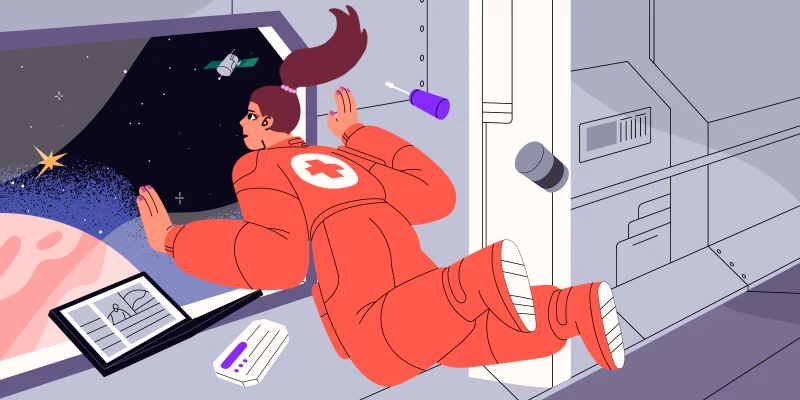Op-Med ran the “Match Day” contest in March 2018. We are excited to announce this piece as an honorable mention.

Medical school begins with a flash and a bang, with the pomp and circumstance of the white coat ceremony. One hundred young, smiling faces, shaking hands with school faculty, breathing a sigh of relief that we really made it, we’re going to be doctors; we don our crisp short coats in front of friends and family and declare: this is it. If there is a similarly emphatic moment at the end of medical school, it is not so much graduation as Match Day, when medical students across the country find out their placement for residency. Like so many of the things we do, it’s not easy to explain to those not in medicine. The energy, excitement, and collective gasps of awe or relief, though, translate into any language, drawing in even the uninitiated. In many ways, Match Day represents the high point of the four years; it justifies and celebrates our massive educational and life investment. With the excitement of that celebration now fading, I’m left to think about what took place between those two events, and wondering what I might say to my naïve self or others like him, about to begin the journey.
Medical school is an experience, so they say, unlike any other. We learn a large quantity of information quickly; we are faced with high standards and pressure to succeed; we are evaluated constantly; we deal not just with abstract concepts but with real people, real diseases, and real issues of life and death. Yet even these are more than the sum of their parts, and it is hard to put the complex experiences into words. I’ve seen and done things in these past four years that are more akin to dreams (and sometimes nightmares) than reality, and it is difficult to substantiate. I’ve tried and will continue to try the only way I know how — by telling stories — because the absurdity and beauty of what we’ve witnessed deserves to be told.
Those of us in the profession smile and nod at one another, understanding the shared bond that forms only in the midst of trials — a trial not by fire but by quizzes and tests, then by hospitals, illnesses, and human bodies. For anyone who isn’t a doctor, though, medical education remains in some senses a black box, and a magical one at that: in walks a regular person, and out walks a physician. In that four-year black box, all the requisite knowledge, technical expertise, and physical dexterity, as well as the problem-solving capabilities, confidence, and kindness society demands from doctors are bestowed upon us.
It’s messier than that, of course, and everyone who’s interacted with a doctor knows medical training doesn’t remove all character flaws; nor does it solve completely the uncertainties, which are still so many, even in modern medicine. But if I would give advice to those about to begin, it would be to lean into that uncertainty. It’s normal not to know the answer. It’s normal to doubt yourself. It’s normal to feel so frustrated you want to quit, and to feel that way every single day for long stretches. It’s normal to talk to friends and family outside the hospital and wonder if you can make them understand. It’s normal if you can’t.
The moments of uncertainty are where the magic happens, if there is any. Medicine might be the only field broad enough to encompass all your questions, to refuse to back down in the face of any mystery. It often fails to provide answers, but it will welcome your questions, so don’t stop asking them — even when the older, the burnt-out, the tired, and the wounded try to silence them. Let curiosity drive you to ask questions that interest you. Some you may answer through innovation, imagination, and research. But don’t stop there; as writer Wendell Berry says, “ask the questions that have no answers.”
Your doubts, frustration, and even despair can be your best opportunities to grow. They can be the springboard to self-examination and reflection, and you can come out of them stronger and more sure of yourself. Others will tell you what a privilege medical school is, but truthfully it won’t often feel like a privilege; you might wonder if it’s worth it. When you wonder that, find a patient. There is healing in the stories of others; you’ll be told often that listening well to patients is vital to their healing. But there is another mysterious truth: listening well to patients might be vital for your healing, too.
Trust the big moments, when everything suddenly seems worth it, when you believe that what you’re doing is a privilege, a gift. It might be the rush of adrenaline with a patient who’s coding, and then seeing a heart begin to beat again. It might be the miracle of guiding a child into the world. It might be a moving conversation with a vulnerable and hurting patient, or even one who is dying. It might be the excitement of a surgical procedure, of opening a body and repairing what’s broken with your own two hands. Trust those big moments, and let them help you decide what kind of doctor you want to be.
Finally, remember that what kind of doctor you want to be isn’t about specialty; it’s about who you are. It’s not a future, hypothetical idea. It has already begun. Your actions matter now because you matter now. You aren’t a someday doctor or future resident; you’re a medical student now, and every day is a chance to do something miraculous for someone else. If you do it well, you won’t just be celebrating on Match Day; you’ll be carrying it with you throughout your career, and it will keep you going.

Brent Schnipke, MD is a writer based in Dayton, OH. He received his MD from Wright State University in 2018 and will begin residency training in Psychiatry this year. His professional interests include writing, medical humanities, and medical education.





